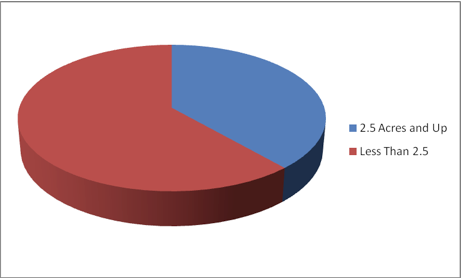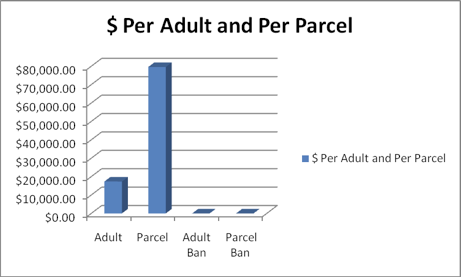Excerpts from the Udell case on zoning
Daniel A. Udell, Appellant, v. Richard Haas, as Mayor of the Village of Lake Success, et al., Respondents
[NO NUMBER IN ORIGINAL]
Court of Appeals of New York
21 N.Y.2d 463; 235 N.E.2d 897; 288 N.Y.S.2d 888; 1968 N.Y. LEXIS 1567
January 8, 1968, Argued
February 28, 1968, Decided
JUDGES: Keating, J. Chief Judge Fuld and Judges Burke, Scileppi, Bergan, Breitel and Jasen concur.
OPINION BY: KEATING
OPINION
Appellant claims that the rezoning was discriminatory, confiscatory and ultra vires.
Prior to the 1960 rezoning in question, almost the entire neck was zoned for business.
We have concluded that the rezoning was discriminatory and that it was not done "in accordance with [the] comprehensive plan" In our view, sound zoning principles were not followed in this case, and the root cause of this failure was a misunderstanding of the nature of zoning, and, even more importantly, of its relationship to the statutory requirement that it be "in accordance with a comprehensive plan."
This fundamental conception of zoning has been present from its inception. The almost universal statutory requirement that zoning conform to a "well-considered plan" or "comprehensive plan" is a reflection of that view. The thought behind the requirement is that consideration must be given to the needs of the community as a whole. In exercising their zoning powers, the local authorities must act for the benefit of the community as a whole following a calm and deliberate consideration of the alternatives, and not because of the whims of either an articulate minority or even majority of the community. Rather, the comprehensive plan is the essence of zoning. Without it, there can be no rational allocation of land use. It is the insurance that the public welfare is being served and that zoning does not become nothing more than just a Gallup poll.
Moreover, the "comprehensive plan" protects the landowner from arbitrary restrictions on the use of his property which can result from the pressures which outraged voters can bring to bear on public officials. There is danger that zoning … may tyrannize individual property owners. Exercise of the legislative power to zone should be governed by rules and standards as clearly defined as possible, so that it cannot operate in an arbitrary and discriminatory fashion, and will actually be directed to the health, safety, welfare and morals of the community. The more clarity and specificity required in the articulation of the premises upon which a particular zoning regulation is based, the more effectively will courts be able to review the regulation, declaring it ultra vires if it is not in reality 'in accordance with a comprehensive plan.'" As Professor Haar points out, zoning may easily degenerate into a talismanic word, like the "police power", to excuse all sorts of arbitrary infringements on the property rights of the landowner. To assure that this does not happen, our courts must require local zoning authorities to pay more than mock obeisance to the statutory mandate that zoning be "in accordance with a comprehensive plan". One of the key factors used by our courts in determining whether the statutory requirement has been met is whether forethought has been given to the community's land use problems, Where a community, after a careful and deliberate review of "the present and reasonably forseeable needs of the community", adopts a general developmental policy for the community as a whole and amends its zoning law in accordance with that plan, courts can have some confidence that the public interest is being served Where, however, local officials adopt a zoning amendment to deal with various problems that have arisen, but give no consideration to alternatives which might minimize the adverse effects of a change on particular landowners, and then call in the experts to justify the steps already taken in contemplation of anticipated litigation, closer judicial scrutiny is required to determine whether the amendment conforms to the comprehensive plan.
The difficulties involved in developing rational schemes of land use controls become insuperable when zoning or changes in zoning are followed rather than preceded by study and consideration.
What we do mean is that the courts must satisfy themselves that the rezoning meets the statutory requirement that zoning be "in accordance with [the] comprehensive plan" of the community. As the trial court noted, generally New York cases "have analyzed the ordinance * * * in terms of consistency and rationality."
When appellants acquired the parcel, it had been zoned for business use for some 12 or 13 years and so it remained for the next 8 or 9 years.
It is significant that no consideration was given to other possible alternatives for alleviating the traffic problem.
On July 5, 1960 the trustees retained Mr. Hugh Pomeroy to make just such an investigation. Later that same day, the planning board and the trustees met in joint session, and it was agreed that a required public hearing should be held promptly. On July 27, 1960 ordinance No. 60 became law following the holding of a public hearing two days earlier.
This history of ordinance No. 60 must immediately raise doubts whether this race to the statute books was in accord with sound zoning principles or was a subversion of them for the process by which a zoning revision is carried out is important in determining the validity of the particular action taken.
Nevertheless, we can come to no other conclusion that the rezoning was not "accomplished in a proper, careful and reasonable manner. Ordinance No. 60 not only did not conform to the village's general "developmental policy", but it was also inconsistent with what had been the fundamental rationale of the village's zoning law and map. The amendment was not the result of a deliberate change in community policy and was enacted without sufficient forethought or planning. The particular conditions existing in the area did not support the radical change, which ordinance No. 60 embodied.
More than 60% of the value, of appellant's property, or $ 260,000, *was wiped out because, to use the words of the village's first expert, "in his discussions he had found it is the feeling of the Village that it does not want extensive business in that area".
These vague desires of a segment of the public were not a proper reason to interfere with the appellant's right to use his property in a manner which for some 20 odd years was considered perfectly proper. If there is to be any justification for this interference with appellant's use of his property, it must be found in the needs and goals of the community as articulated in a rational statement of land use control policies known as the "comprehensive plan". We find that appellant has demonstrated that ordinance No. 60 did not conform to the established "comprehensive plan" of the village. Hence, ordinance No. 60 must be held to be ultra vires as not meeting the requirement of section 177 of the Village Law that zoning be "in accordance with a comprehensive plan".
- Log in to post comments





